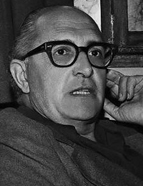

One is left with the feeling that he is familiar with a great variety of themes, from Portuguese and European literature to 16th-century drama, from cinema to music, from science to philosophy. While his essays may have a strong historical component – suffice to recall the texts that evoke history such as “Portugal e a sua história" [Portugal and its History] and "Jaime Cortesão, o historiador” [“Jaime Cortesão, the historian” (Rever Portugal... [Revisiting Portugal]), it should be noted that they fall within the scope of literary and cultural history, focusing to a large extent on the production of books, on the influence of foreign authors in Portugal in different centuries, and also on literary analyses centred on the field of literary theory. Nevertheless, when considering, for example, the anthology entitled Líricas Portuguesas [Portuguese Lyric Poetry] (1958), it is particularly noteworthy that Sena took great pains to provide a historical contextualization of the period (1909-1929), consisting of a historical and literary classification and sociological profile of the poets included, according to variables such as their academic education and geographical origin.
In keeping with the line of thought that Portugal was experiencing a period of stagnation, riddled with economic and political crises and standing in stark contrast to its Discoveries past, Jorge de Sena was sceptical with regard to the evolution of Portuguese contemporary history. With his cosmopolitan spirit, quite common in those who had had to adapt to different countries and lifestyles, Sena often challenged the inability of the Portuguese to take advantage of the cultural and linguistic heritage left by this period of imperial glory (Alves, “Permanente lucidez crítica” [Permanent critical clarity], p. 22). It was these 'psychological' features, also described by other authors such as Teixeira de Pascoaes, partly related to the country's decadence and the absence of solutions to overcome the doldrums, a closed mindset, provincialism, and the lack of audacity, that encouraged him to write articles, essays, and poems in which his frustration regarding the condition of Portugal is particularly salient. Considering, however, that Jorge de Sena’s criticism of Portugal's approach to life stemmed partially from his personal struggle for artistic and academic recognition, it must be noted that some of his texts, for example, on the “mediocrity” of national artists, should not be read without considering their subjectivity, contrary to the precision required of academic works.
